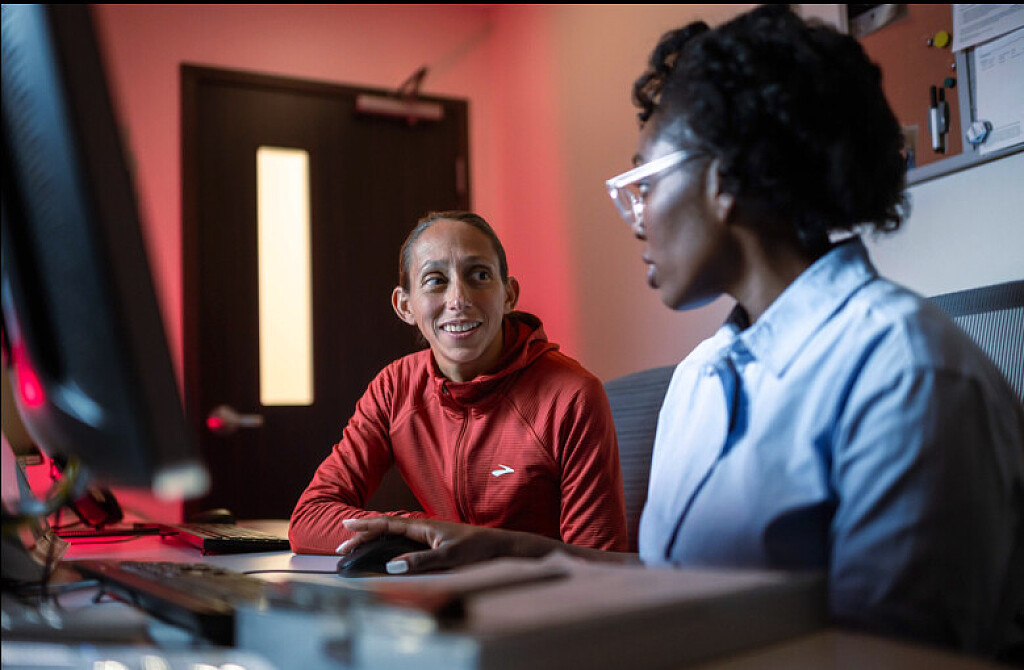Running News Daily
Running News Daily is edited by Bob Anderson. Send your news items to bob@mybestruns.com Advertising opportunities available. Train the Kenyan Way at KATA Kenya and Portugal owned and operated by Bob Anderson. Be sure to catch our movie A Long Run the movie KATA Running Camps and KATA Potato Farms - 31 now open in Kenya! https://kata.ke/
Index to Daily Posts · Sign Up For Updates · Run The World Feed
Scientists Are Trying to Clone Des Linden’s Heart
“Digital twin” technology might unlock new insights into performance and health—for everyone
In the age of lab-tested super shoes, blood lactate testing, and endless GPS watch data, companies are constantly searching for new ways to improve athletic performance. The next step for precious marginal gains might be in the virtual world.
This week, the IT and consulting firm Tata Consultancy Services (TCS) announced they’re creating a “digital twin” of marathon runner Des Linden’s heart. According to TCS, which is the title sponsor for road races like the New York City Marathon and London Marathon, “A Digital Twin Heart is a real-time, virtual replica of a person’s heart, offering precise data on its function, efficiency, and response to varying conditions.” If that sounds like something out of a Stanley Kubrick film, we’re right there with you. In plain English, TCS hopes that a digital heart can provide precise, real-time training feedback to help inform athletes in the future. For example, imagine if you could analyze your cardiac activity at a certain point in a race. Say, mile 15 of the New York City Marathon, on hilly Queensboro Bridge.
TCS believes that using that kind of data could unlock new insights: “Imagine the difference it might make to see, measure, and monitor a heart going through such significant stress—and predict with high accuracy how it will perform. Imagine you could hold a realistic digital copy of this heart in your hand or explore inside its ventricles at every beat.”
Linden, 40, is a two-time Olympian and is perhaps most known for winning the 2018 Boston Marathon. On Sunday, she set a new American masters record for the marathon, running 2:27:35 to break Deena Kastor’s previous time from 2015 by 12 seconds. Before the race, Linden told Runner’s World that she’s excited about the digital twin, although she hasn’t integrated it into her training yet. She admitted the concept is sci fi-esque. Linden’s virtual heart is still in the early stages, but TCS (which sponsors Linden and Kara Goucher’s podcast Nobody Asked Us with Des & Kara) hopes to have her twin ready in November. Linden has already sat for an MRI, which the TCS team is using to model the replica. Debashis Ghosh, President of the Life Sciences and Healthcare Business Group at TCS, believes that digital twin technology has the potential to not only improve running but inform broader healthcare decisions.
“Des’s Digital Heart can optimize her training, performance, and recovery but this technology is important for reasons far beyond sports—it can ignite a personal healthcare revolution,” he said in a press release. “With heart disease the leading cause of death in the U.S., it is more important than ever to innovate techniques to keep hearts healthy.”
The impact of the emerging tech is to-be-determined, but TCS believes that digital twins will be commonplace for civilians by 2035, thanks to recent advancements in fields like AI, machine learning, and virtual reality.
Who knows—maybe we’ll all be checking the stats of our digital hearts just as much as our cadence or average pace after a run.
by Runner’s World
Login to leave a comment




